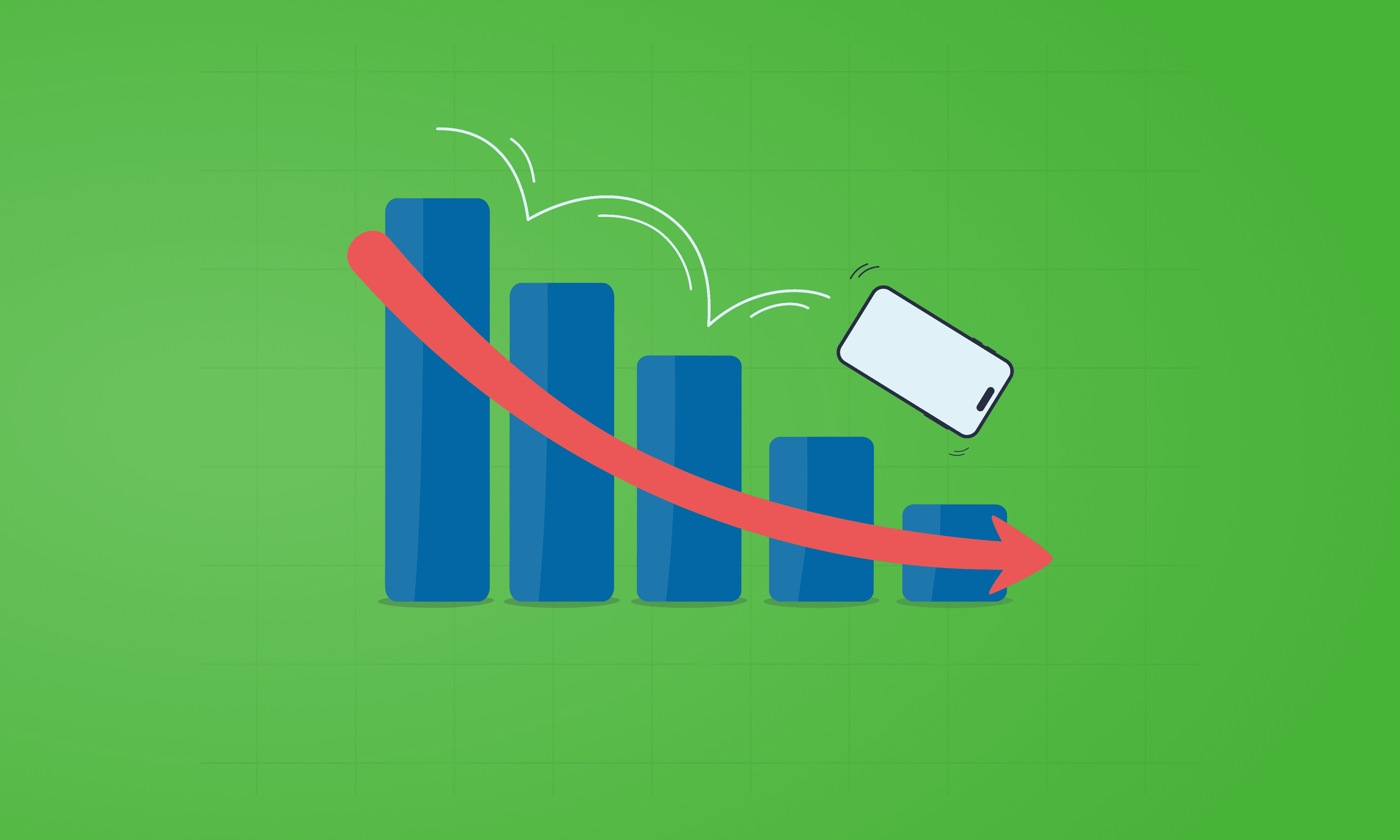Learn what crucial steps you need to take if your phone is stolen and how to protect your personal information and data.

Written by Yasmin Maagbe, Content and PR Executive | Environment and Consumer Electronics
Last updated on 12 December 2025

In 2023 52,144 phone thefts across London, which to put into perspective that's 5.93 phones stolen for every 1000 people. In 2025 it was reported that criminals are now taking it a step further with phone theft, stealing victims online banking login details and stealing £1000's in the blink of an eye. Phone theft occurs in a number of public places such as parks, bus stops and busy shopping centres with the criminals often being on the bike for an easy swipe. This alarming trend highlights a growing epidemic where smartphone users are becoming prime targets for thieves and it seems as though the countermeasures to tackle this are pretty insufficient. Keep reading to find out what crucial steps you need to take if your phone is stolen and how to protect your personal information and data.
First things first, one of the main things you should do is stay calm and assess the situation because panic can make it much harder to think clearly so taking a moment to gather your thoughts is important. Take the below actions to protect yourself in case you’ve been a victim of phone theft:
Get home or somewhere where you can access your iCloud / Google account to track your stolen phone through Find My tool.
While logged into your cloud account, secure your phone via reporting it as stolen and factory reset it to protect your data.
Call your network provider to report your phone as stolen so they block it for you.
Contact the police on 101 to report your phone as stolen by providing them the phone’s IMEI number.
You should try tracking your phone by using built-in apps such as: Find My iPhone (iOS) or Find My Device (Android). These tools can help you to locate your device or at the very least, see if it’s still powered on as well as give you an idea of where it was last active. If you’re not able to do this and the recovery of your mobile phone seems unlikely, you should factory reset your device remotely so it’s wiped of your data. It is crucial to call your network provider so your phone can get blocked and any further usage will be prevented. Similarly, report it to the police so your phone is listed as stolen on their database. It is important to do all of these steps as soon as possible.
Another vital step is to secure all your financial data. If you use online banking, then make sure that you contact your bank as soon as possible to block access to your banking app from that device and block your cards. If thieves gain unauthorised access to your bank accounts, it will be hugely detrimental.
Begin changing the passwords for any other important accounts linked to your phone e.g. email, banking as mentioned above and social media. This prevents thieves from accessing these accounts even if they manage to get past your phone's security. Monitor your accounts closely for any suspicious activity as thieves may attempt to use your information for fraudulent purposes. It’s also a good idea to inform your contacts about the theft so they can be cautious of any unusual messages they might receive from your phone as phishing attempts and scams through messages are another issue on the rise.
It is advised to completely wipe your stolen phone which luckily you can do remotely from any laptop or tablet. You will need your iCloud or Google account logins to do this.
If you lost an iPhone:
Open any internet browser and go to icloud.com to log into your Apple ID remotely.
Click on your user profile and locate the option “Find Devices”.
From the list of connected devices click on your iPhone and tap on the option “Mark as Lost”. By doing this, your iPhone will activate its passcode lock and you will be prompted to enter a message which will be displayed on the screen and if found you can be contacted.
Next, click on the option “Erase This Device” which will initiate factory reset on your phone. You will be asked for your Apple ID password to initiate the erasure.
If your iPhone is offline, you will see the “Erase Pending” status. The remote erasure will begin when the iPhone next connects to any Wi-Fi or cellular network.
If you lost an Android phone:
Go on the internet and log into your Google account at www.google.com/android/find/
On the left hand side of the screen, choose the stolen device and click on the “Secure Device” option which will lock your phone with its PIN or password.
Next click on the “Factory Reset Device” option, which will prompt you to log into your Google account to perform the reset.
If your stolen Android is offline, the factory reset will start when it’s next connected to a Wi-Fi or cellular network.
Another thing to note is Android's new and improved security features are designed to safeguard your device and personal data from theft. Their latest protection measures aim to prevent theft, such as an upgraded factory reset that blocks unauthorised resets without your credentials. Built-in security features like Theft Detection Lock and Offline Device Lock activate automatically when your phone is stolen, securing the screen and data. Lastly, if your phone has already been taken, Remote Lock enables you to lock the screen using just your phone number and a security challenge, allowing you time to retrieve your account information and utilise Find My Device tools.
It’s safe to say that a mobile phone is probably one of the most expensive tech gadgets that everyone got on them today making it understandably a prime target for theft due to their high resale value and wealth of personal data especially financial information. The small compact size of mobile phones also makes it super easy to steal and ultimately flip for cash which often happens through shady mobile pawn shops or online marketplaces. This can make it extremely hard for mobile phone owners when trying to recover their device, fuelling this lucrative black market.
However, at Compare and Recycle all of our trusted recyclers on site do not accept the sale of stolen phones. Upon receipt the mobile phone and its IMEI number is checked against police records and blacklists. This means you can have peace of mind that if you find that your phone has been stolen, rest assured it won’t be resold with us. We advise people to find out exactly how to remove data from all of your devices, especially if you’re thinking of selling it or recycling it. This ensures that you are completely covered when it comes to data vulnerabilities in the future.
Stay vigilant in public spaces because this is key in preventing phone theft and ultimately staying safe. This means avoid using your mobile phone in crowded areas as much as possible, especially where thieves can easily snatch it from your hand. Instead, you can keep your phone secure in a zipped bag or deep pocket where it’s less accessible. Of course, if you really need to use it, just be aware of your surroundings and try to position yourself in a way that makes it harder for someone to grab it. Consider getting an anti-theft phone strap or case which can be locked to a piece of your clothing or bag or go over your body to make it more difficult for the phone to get snatched from your hand. Similarly, make use of built-in protection features on your phone and set up 2-factor authentication as well as do not set the same passcodes or passwords for different apps to minimise the damage if your phone gets stolen. We believe that these precautions can significantly reduce your risk of becoming a target.

Digicam trend drives 979% spike in iPhone 4 demand and here's what you need to know before using one.

The iPhone used to define innovation. Now every new model feels the same. Is Apple’s story running out of pages?

See which Apple, Samsung and Google phones hold their value best over the first and second year on the market.